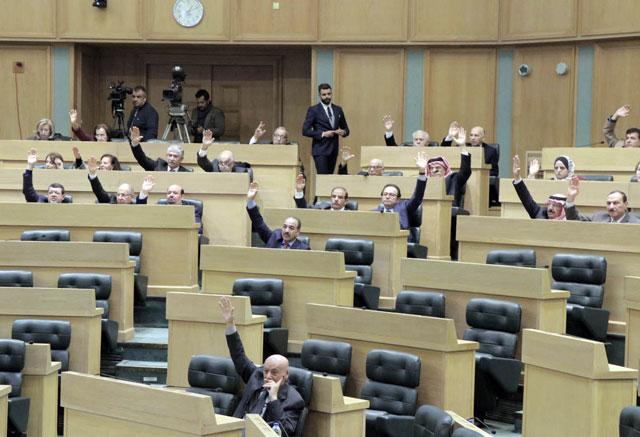You are here
Tarawneh calls for longer pardon list as committee launches deliberations
By JT - Jan 06,2019 - Last updated at Jan 06,2019
AMMAN — Lower House Speaker Atef Tarawneh on Sunday called on the government to expand the list of crimes covered by the draft general pardon law as much as possible to implement the Royal directives of alleviating citizens' burdens.
The Lower House on Wednesday referred the draft general pardon law to its Legal Committee, granting it an “urgency status”, the Jordan News Agency, Petra, reported.
Chairing the first meeting of the committee, Tarawneh said that a number of criminal acts cannot be pardoned as part of the bill, and required Cabinet decisions separate from the general pardon draft law, such as university students’ debts, the gharimat (indebted women) issue and farmers' loan interests.
Tarawneh also highlighted the importance of revisiting the issue of hot cheques, suggesting executing the penalty one year after the ruling is issued to give the indebted a chance to pay their dues.
He also underscored the necessity of including all fines of less gravity than the first-degree in the pardon, in addition to cases where personal rights were dropped.
Tarawneh called on the deputies to give their comments and suggestions to the Legal Committee in order to include them in the bill before passing it.
Head of the committee, Abdul Munim Oudat, said that the committee will hold expanded meetings to discuss the bill with civil society institutions, experts and relevant authorities.
The general pardon law has been demanded by the public for months, with the issue coming to a head when His Majesty King Abdullah issued directives ordering the government to draft the bill and have it enacted through constitutional channels.
Last week, the government prepared a general pardon bill and excluded serious crimes. The exceptions to the bill include serious crimes that have to do with the safety of society, including state security-related ones, in addition to espionage, economic crimes, graft, terrorism and violations to the duties of public office.
They also include crimes related to narcotics, arson, murder, theft, counterfeiting, fines imposed as a result of tax and customs evasion and traffic violations that constitute a direct threat to people’s lives.
Up to 5,000 criminal acts would benefit from the general pardon draft law, Minister of Justice Bassam Talhouni revealed last week.
Talhouni said in a press statement carried by Petra that the number of criminal acts excluded from the draft law was 187, pointing out that the number of beneficiaries from the pardon may reach some 8,000 people.
Talhouni, Minister of State for Legal Affairs Mubarak Abu Yamin, Legislation and Opinion Bureau President Nofan Ajarmeh and a number of judges and representatives from the National Centre for Human Rights and the Public Security Department attended the meeting.
Related Articles
AMMAN — The Lower House on Wednesday referred the general pardon draft law to its Legal Committee, granting it an “urgency status”, the Jord
AMMAN — Up to 5,000 criminal acts would benefit from the draft general pardon law, Minister of Justice Bassam Talhouni revealed on Sunday.&n
AMMAN — The Senate on Tuesday passed the 2019 general pardon law with no changes to the version referred from the Lower House.Passed by the
















